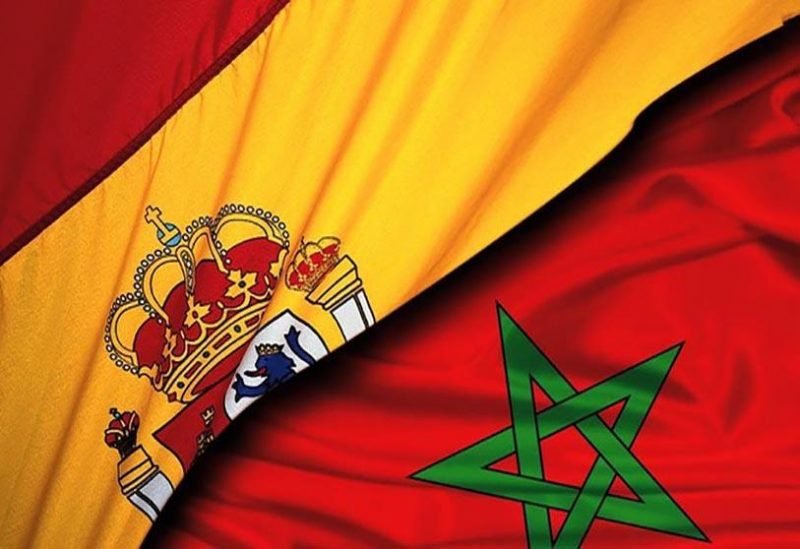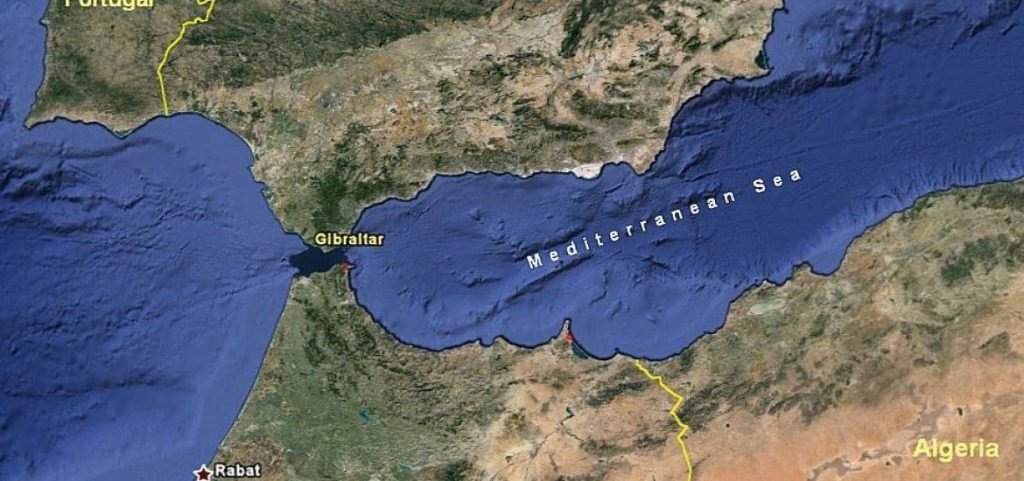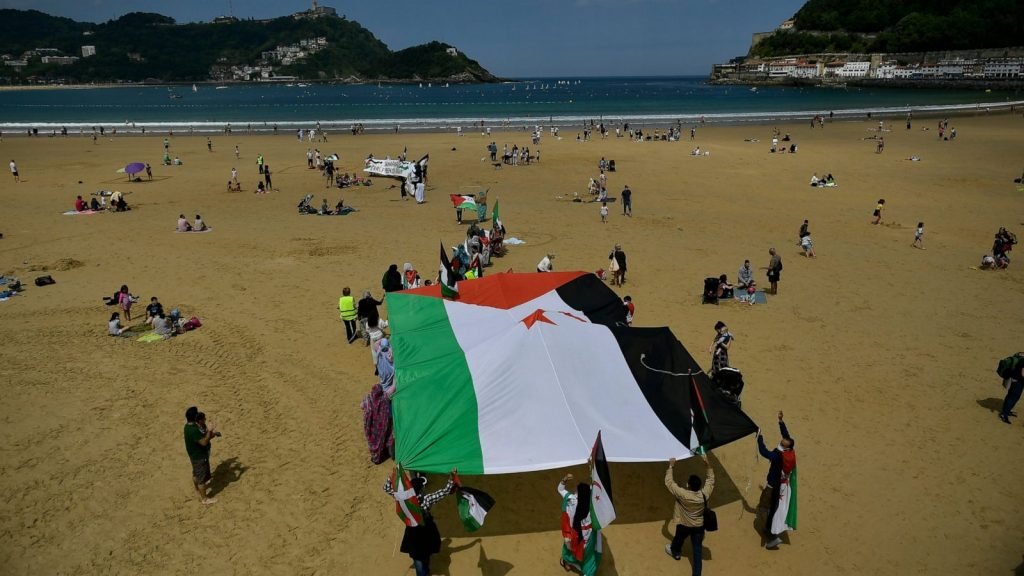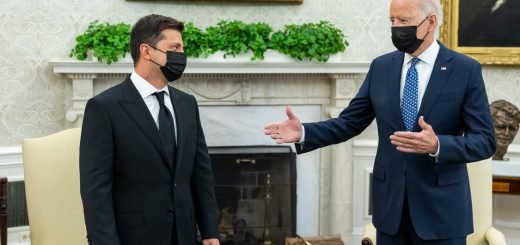Spain’s recognition of Morocco’s claim on Sahara reflects the effectiveness of Moroccan diplomacy: Adnane Hrioua

On March 19, Spain recognized Morocco’s claim to Sahara. This region was colonized by Spain until 1975. Since then it has been seeking independence while Morocco claims Sahara as part of its own territory. To know more about this issue from the perspective of Morocco, The Kootneeti’s Consulting Editor, Niranjan Marjani, spoke to Mr. Adnane Hrioua, a researcher from Morocco.
Niranjan Marjani: Could you tell us briefly about the background of the Sahara region? How was the region colonized and what exactly is the basis for Morocco’s claim over the region in the post-colonial period (post-1975)?
Adnane Hrioua: The Sahara affair is a historical issue that is not easy to summarize in a few lines. It is a file that knows the intersection between the historical, the political, the social and the religious. Indeed, to try to simplify the history by giving a clear and brief idea on the main dates and events that marked the evolutionary process of the Sahara affair, it is appropriate to put the region in a historical imperialist process that marked the 19th and 20th century. In fact, after the colonization of Algiers in 1830, the Cherifian Empire, based on religious and social motives, chose to support its neighbor Algiers militarily and economically. This support, in addition to other factors related to the French and Spanish imperialist doctrine of a first degree, and British and German of a second, as well as the internal variations characterizing the pre-state period, led, together, to the establishment of a Spanish-French colonization process starting with the occupation of the Río de Oro region in 1884 (Dakhla-Oued Eddahab region), and passing through the signing of the Treaty of Paris between France and Spain in June 1990, which defined the exact borders between the Río de Oro region and current Mauritania. In 1912, Morocco was totally administered and occupied by two European forces: Spain in the north and south, and France in the centre.
Then, after the return of Sultan Mohammed V and the official declaration of the beginning of the independence of the Cherifian Empire, a whole process of decolonization began after the declaration of independence in 1956. Morocco was able to recover Tarfaya in 1958 and Sidi Ifni in 1969, however, despite its insistence, the Spanish forces had refused to hand over the Sahara territory. In fact, in preparation for the withdrawal, Spain unilaterally declared in August 1974 that it would hold a referendum the following year. In response, Morocco sought the advisory opinion of the International Court of Justice, which affirmed, first, the existence of social and religious ties between the Cherifian Sultan and some tribes in the Sahara region, and second, that the land was not without an owner before the Spanish occupation. On these bases, the late King Hassan II organized the Green March with the participation of 350,000 Moroccan citizens in order to liberate the South and link it with the North of the country.
After the departure of Spain, a series of military confrontations characterized the region with the entry of new actors in the game, namely Algeria and the Polisario. In 2007, Morocco presented an autonomy project that aims to grant the Saharan province autonomy to manage their local affairs themselves under Moroccan sovereignty as a solution and a Moroccan proposal to the dispute.

NM: Spain recognized that the Sahara region would operate autonomously under Morocco’s rule. What are the factors that led to this decision by Spain?
AH: First is the legitimacy of the Moroccan position. Since the outbreak of the question of the Moroccanity of the Sahara, Morocco has put forward applicable and rational proposals. The Moroccan Sahara is surrounded by a set of risk factors, namely terrorism and trafficking. Spain has no interest in leading to a destabilization of this region through the support of a separatist project that has no horizons. For this reason, it has supported the most realistic project that is on its negotiating table.
Second is the need to make a new balance in foreign relations on the part of Spain. Today, after a structural change in the world geopolitical composition, especially after the spread of covid-19, and the crisis resulting from the entry of Brahim GHALI on Spanish territory, Madrid was in an obligation to review its regional alliances and coalitions with the stakeholders in the Moroccan Sahara issue. From this, we believe that Madrid has found, after about a year of cold diplomatic relations with Rabat that the support of the Moroccan position plays in favor of its geopolitical and geostrategic interests. A series of issues have been addressed after the last visit of Spanish Prime Minister Pedro Sanchez to Morocco and his meeting with King Mohammed VI. This is a kind of re-evaluation of the gains made by the Spanish government from the file. In this context, we can well understand why former Spanish Prime Minister Zapatero chose to describe the Spanish decision as “a smart move.
Third, joint economic gains have played a fundamental role in this Spanish-Moroccan rapprochement. Spain is Morocco’s leading economic partner. It has been able to replace France, which has held that position for years. The common interests, therefore, contributed to the preparation of a first basis for talks. In addition, Spain has lost about 1.16 billion euros after its exclusion from the “Marhaba” operation in the year 2021. It does not want to lose this figure again.
NM: Previously the United States had recognized the Sahara region as a part of Morocco when Morocco established diplomatic ties with Israel. Now Spain has also changed its stand. What is the geopolitical significance of the recognition that Morocco is getting?
AH: The geopolitical implications of this recognition are multiple. First of all, this recognition reflects the effectiveness of Moroccan diplomacy. It is the fruit of a transformation of Moroccan foreign policy that I consider now more and more realistic in the treatment of regional and global issues. Moroccan positions on the Ukrainian-Russian issue reflect part of this realism.
Moreover, Moroccan advocacy and negotiation will become stronger after this support. It is a kind of consolidation and support of Moroccan diplomacy by giving Rabat a relatively winning negotiation card. Also, I see that Morocco has strengthened its diplomatic strategy with new and globally realistic convictional instruments. One only has to look at the website created by the Moroccan government called “Moroccan Sahara” and read the guide entitled “Moroccan Sahara: Illusions and Realities about the conflict – Guide for an effective advocacy”, which gathers all the answers to the questions that arise in this matter, to understand that Morocco does not limit itself only to the diplomatic level in dealing with this issue.
In addition, there is a new geopolitical reality. After having had the political support of the first international military force and permanent member of the UN, the Western countries, while taking into consideration the autonomy of their foreign policies, are in a relatively different situation after 2020. They will be forced to resolve the issues from the colonial period, in order to prepare and focus on the new existential challenges coming from Russia and China. Currently, Europe is experiencing a threat not seen since the Second World War. The United States, since the recognition of the Moroccanity of the Sahara, is changing its “classic” and “traditional” attitudes towards a series of issues by reclassifying geopolitical priorities after the health crisis and the increase in the Russian military and Chinese economic threats. And to do this, Washington must “close” old global political issues.

NM: What is Morocco’s stand on MINURSO established by the Security Council Resolution 690 in 1991? Further, the Security Council adopted Resolution 2285 in 2016 calling for greater political will between the parties (Morocco and the POLISARIO Front) to conduct more intensive and substantive negotiations. In 2021, by adopting Resolution 2602, the UN decided to extend the mandate of MINURSO until October 31, 2022. Does recognition of Morocco’s claims by individual countries override the relevance of the Security Council’s resolutions?
AH: Morocco is committed to full and permanent respect for international law and UN institutions. The decisions taken by the states do not, to my knowledge, go beyond the legal and administrative framework given to Morocco by international law. I believe that these states see in the Moroccan proposal a kind of realism in its application. For this reason, they have chosen to support its position.
NM: Morocco and Spain have had their share of differences – whether over the Sahara region, the issue of migrants or the demarcation of the territorial waters and Special Economic Zones. Do you think Spain’s recognition of Morocco’s claim over the Sahara region would lead to improvement in the Morocco-Spain ties?
AH: Certainly, the explicit recognition and the exchange of high-level letters, as well as the official visits, declare, all of them, a beginning of a new phase in the bilateral relations after a period of deep crisis. Rabat is ready, after having had the political support of Spain, to discuss in detail the migration file and the economic matter with Madrid. It is enough to read the full text of the joint statement adopted at the end of the talks between King Mohammed VI and Spanish Prime Minister Pedro Sánchez to understand perfectly that the two countries have decided to end the crisis by opening a new page in diplomatic relations. It may take some time to put in place this comprehensive agreement that meets the expectations of both parties, but, keeping this favourable political framework, arriving at a balance and finding a consensus represents the nearest scenario.
NM: Will Ceuta and Melilla cease to be a bone of contention between Morocco and Spain?
AH: In 2002, King Mohammed VI, as head of state and leader of Moroccan foreign policy, made it clear in his throne speech that “Morocco has been asking Spain since its independence to end its occupation of Ceuta, Melilla and the neighbouring usurped islands in the north of the Kingdom”. And during the recent crisis between the two countries, the former head of the Moroccan government Saad Dine El Otmani stated in a clear way that Morocco will one day open the file of Ceuta and Melilla, which led to the call of the Moroccan ambassador by Madrid, which in turn supported the official vision of the Moroccan state.
In fact, the issue of Ceuta and Melilla is a thorny issue. It may be that some analysts see that Morocco gives much more importance to the Sahara issue than to Ceuta and Melilla, but in reality, and from a personal vision, Morocco has concentrated and centralized its efforts currently on the Sahara issue. It is unfavourable for Moroccan diplomacy, in the current context, to open two subjects that are different in status and converge in history. For this reason, I see that Spain’s recognition of Morocco’s sovereignty over the Sahara does not mean the end of the subject of the North. King Mohammed VI was clear in his statement, and Morocco has not given up Ceuta and Melilla. It has only changed its strategy.
On the other hand, we should take into account the political context in the analysis of this issue. In other words, considering the current political context, the issue does not represent an apparent point of disagreement, but when the context changes, the Moroccan leader will not hesitate to declare that the matter represents a question of sovereignty of the Moroccan state. As a result, the issue will always be on the table of the Moroccan administration.
NM: Algeria cut diplomatic ties with Morocco in November 2021. What will be the ramifications of Spain’s move on the relations between the two North African neighbours?
AH: Applying the logic of the Sahara file, the rapprochement between Rabat and Madrid means, in return, a kind of distancing between Algiers and Madrid. Normally, the Spanish decision to recognize the Moroccanity of the Sahara should not impact Algeria, since the official Algerian discourse insists on its neutrality vis-à-vis the issue. Political practice, however, reveals the opposite. The sometimes illicit, and most explicit, support of the Polisario shows that Algeria is a key player that must engage in the negotiation process in order to reach a comprehensive agreement on this matter. In this sense, Spain’s acceptance of Ghali as a host has demonstrated that Madrid is on the side of the Algeria-Polisario clan. Today, after the Spanish recognition of the Moroccanity of the Sahara, Algeria immediately called its ambassador to Spain as a kind of refusal of this strategic move.
I think that the relations between Morocco and Algeria currently go beyond the Moroccan Sahara issue. It is a political confrontation of two regimes that started since the independence era. If we analyze the Algerian political discourse since the presidency of Houari Boumediene until the period of Abdelmadjid Tebboune, we will notice that the Sahara issue is the result, not the cause, of a deep divergence between Morocco and Algeria. In this regard, it should be mentioned that this decision to break off diplomatic relations was taken unilaterally by Algeria. The latter accused Morocco of interfering in Algeria’s internal affairs. Certainly, it remains an unverifiable political discourse, but it hides, in reality, a deep crisis between the two states that goes beyond the Moroccan Sahara issue.
NM: What would be the impact on the energy supply from North Africa to Europe through Spain?
AH: After the shutdown of the gas pipeline between Algeria and Europe through Morocco, Rabat has embarked on a process of securing an energy alternative. First, it is concluding an agreement with Spain to allow Morocco to use a Spanish regasification plant in the process of receiving gas through the Maghreb pipeline. Secondly, it is currently trying to accelerate the process of finalizing the gas pipeline between Morocco and Nigeria, which will meet a large part of Spain’s energy needs. Thus, the Moroccan-Spanish rapprochement is beginning to bear geopolitical and geostrategic fruit for both states.


















